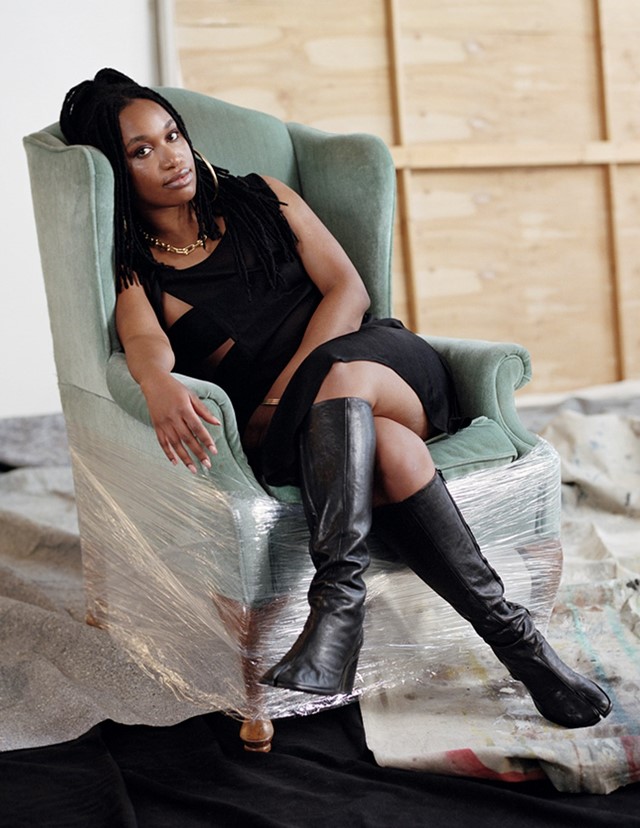The Harlem-born artist talks about the impact of Abel Ferrara’s horror film The Addiction, and how its heroine inspires her own explorations into those beyond the realm of acceptability
This article is taken from the Spring/Summer 2023 issue of AnOther Magazine:
“I first saw Abel Ferrara’s The Addiction [1995] when I was about 12. I was on the cusp of a lot of change, of course, so it was the perfect age to latch on to that movie. It felt very realistic – showing the spontaneity of encounters that take place in New York. Despite having this supernatural, horror, vampire element, the film was totally plausible to me. There’s a strong female lead, which I love – she’s complicated, a heroine but also an antihero. The concept of the fallible hero has always fascinated me – I think I model that kind of protagonist in my own practice because a lot of my characters fall outside the realm of respectability politics and they’re generally functioning within the margins in one way or another. I’ve always had a preoccupation with the body, with things that transform or consume it. A vampire film is about the individual’s lack of control over their own body. It probes questions in relation to the soul, the physical self and the death of the ego – essential to figuration and portraiture.”
Combining printmaking, textiles, painting and more, Tschabalala Self’s celebratory and richly layered portraits challenge fantasies and assumptions relating to the Black female body while simultaneously appropriating them. Referred to as “the anti-Picasso” by the collector Dean Valentine, the Harlem-born artist interrogates the canon and pop culture alike in her examination of the semiotics and sexualisation of Black women. Self’s vibrant figurative artworks, which recall traditional quilt-making in their composition and use of repurposed fabrics, are often formed by incorporating pieces taken from her earlier works. Described by the artist as “a kind of cannibalising of my own practice”, this process invokes the powerful sense of accumulated memory and meaning that permeates her portraits.
Hair: Adam Szabó at Frank Reps using R+CO. Make-up: Ingeborg using CHANEL. Set design: Lian Calvo. Photographic assistant: Jackson Verges. Styling assistants: Melina Frangos, Terrence Munn and Hamza Saeedia. Tailor: Yana Graham. Scanning: Borough Photo
This story features in the Spring/Summer 2023 issue of AnOther Magazine, which is on sale now. Order here.
